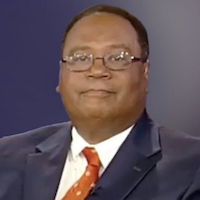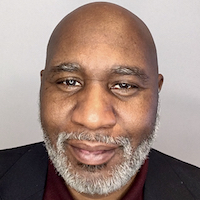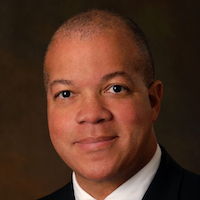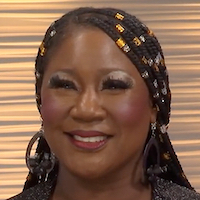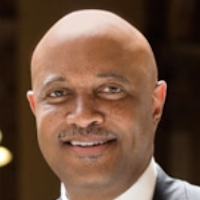
29 Jun 2023 Black Conservatives Celebrate Supreme Court Ruling to End Racial Preferences in College Admissions
Washington, D.C. – Ambassadors with the Project 21 black leadership network cheered today’s U.S. Supreme Court ruling on two seminal affirmative action cases: Students for Fair Admissions, Inc. v. President and Fellows of Harvard College and Students for Fair Admissions, Inc. v. University of North Carolina. Project 21 had filed an amicus brief in the Harvard case.
The Court ruled in favor of Students for Fair Admissions in both cases, by deciding that institutions of higher learning cannot use race as a factor in admissions.
In the Court’s ruling, Chief Justice Roberts wrote that the Court says it has “permitted race-based admissions only within the confines of narrow restrictions. University programs must comply with strict scrutiny, they may never use race as a stereotype or negative, and — at some point — they must end.”
“Today we have a 21st century Brown v. Board moment,” said Project 21 Chairman Horace Cooper. “Finally, the court has ruled that colleges and universities will have to use only methods that are ‘race-neutral’ for admissions and will no longer be able to discriminate against or in favor of applicants based on their race.”
“No student should have to worry that they will be prevented from entry into college because of their race, and thanks to today’s ruling, no student will,” added Cooper.
In what may be considered the most important issue addressed during the Supreme Court’s 2022-23 term, the cases challenged race-focused policies rooted in previous court decisions that suggested that diversity goals justify using preferences in admitting incoming freshman classes.
Since the 1978 SCOTUS ruling in University of California Regents v. Bakke, race has been allowed to be a factor in college admissions, no matter the harm inflicted on students considered less favorable by college admission boards. That injustice has been undone with today’s ruling.
“Using discriminatory practices to supposedly remedy past discrimination was always going to be a recipe for disaster,” said Project 21 Ambassador Christopher Arps. “Unfortunately, Asian students, who you thought would benefit from affirmative action, instead have become some of its biggest victims. Today’s Supreme Court decision is a decisive victory towards Martin Luther King, Jr.’s dream of a colorblind society.”
“This is a self-evident truth: all men are created equal. That means the God-given, intrinsic importance of life, liberty, property and equal treatment under the law is concrete and inviolable,” said Project 21 Ambassador Mike Hill, a former member of the Florida House of Representatives. “All people should be treated according to their performance. New violations do not correct past discrepancies regarding this truth. Affirmative action is wrong on its face. The majority on the Supreme Court got this one right. Finally.”
“I am ecstatic over the Supreme Court’s decision to strike down Harvard’s and UNC’s discriminatory admissions policies,” said Project 21 Ambassador Melanie Collette. “Affirmative action, while well-intentioned, has become a twisted game that rewards skin color over merit and that punishes hard-working individuals who are white or Asian.”
“For years, blacks have been told their achievements are not solely their own, and that their skin color somehow played a role in their successes,” added Collette. “It’s insulting and demeaning to suggest that blacks couldn’t have done this without affirmative action’s handout.”
“Today was clearly a victory for the country,” added Donna Jackson, Project 21’s director of membership development. “Fixing our college admissions process shouldn’t start with affirmative action initiatives; it should start with accountability at the K-12 level. The process clearly punished success and rewarded failure. Merit-based admissions ensures we are competitive not only in the marketplace, but in the world where innovation is needed. Setting low expectations for our students only creates low performance outcomes. We must always strive to challenge the next generation to ensure American greatness.”
“Today’s ruling by the Supreme Court is a win for justice and fair treatment under the law,” said Project 21 Ambassador Curtis T. Hill, Jr., former attorney general of Indiana. “No longer will college admissions offices be allowed to accept or decline students on the basis of their race. This guarantee of equal protection, under the 14th Amendment, cannot mean one thing when applied to one individual and something different when applied to persons of color. Eliminating racial discrimination means eliminating all of it, and that is why I am optimistic about the impacts this ruling will have on fairness and justice in our country’s education system.”
About
Project 21, a leading voice of black conservatives for over 25 years, is sponsored by the National Center for Public Policy Research. Its members have been quoted, interviewed or published over 50,000 times since the program was created in 1992. Contributions to the National Center are tax-deductible and greatly appreciated and may be earmarked exclusively for the use of Project 21.
Founded in 1982, the National Center for Public Policy Research is a non-partisan, free-market, independent conservative think-tank. Ninety-four percent of its support comes from some 60,000 individuals, less than four percent from foundations and less than two percent from corporations. Sign up for email updates here. Follow Project 21 on Twitter at @Project21News for general announcements. To be alerted to upcoming media appearances by Project 21 members, follow our media appearances Twitter account at @NCPPRMedia.




